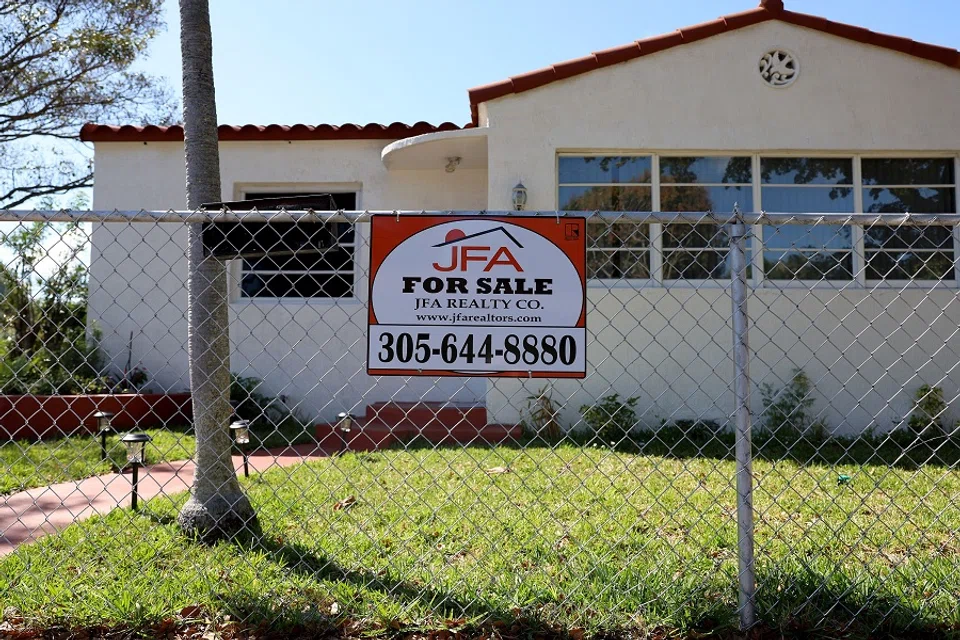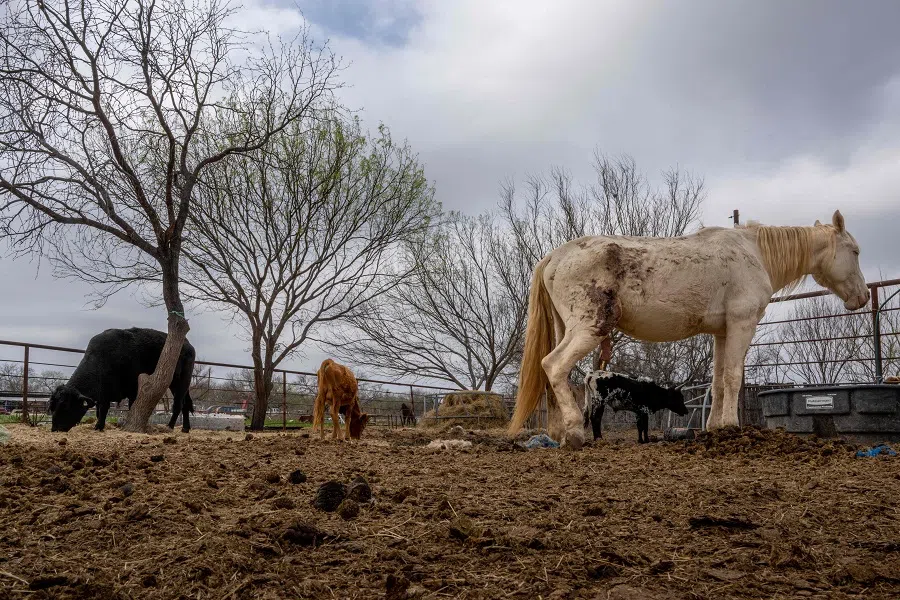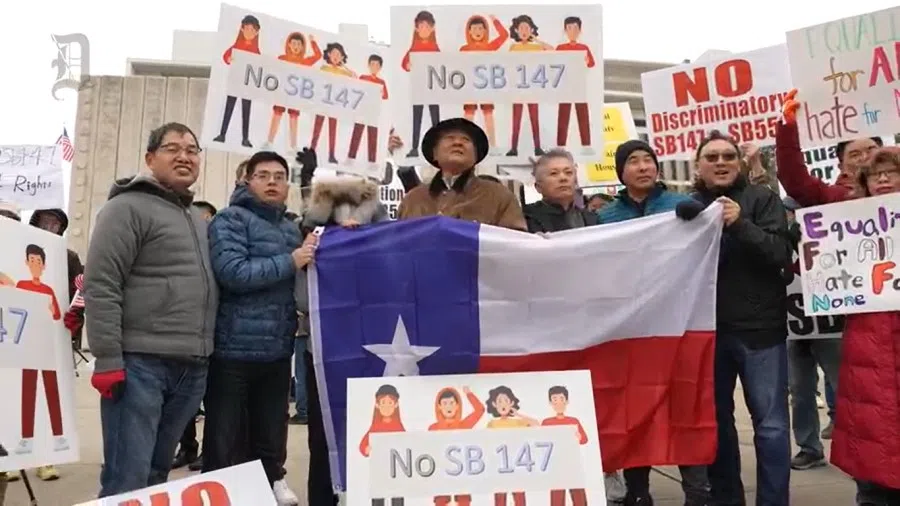Woe to Chinese property buyers in the US: China-US tensions trickling to grassroots
US academic Wu Guo reasons that the recent furore ignited by a draft Texas bill proposing to restrict Chinese buyers from buying property shows that US-China mistrust and jousting has seeped into local communities.

At the start of 2023, tense China-US relations worsened by the balloon saga were further rocked by a furore over potential real estate restrictions. While these restrictions are not of as high a diplomatic signature as the balloon saga, they still highlight the fact that China-US tensions have trickled down to the grassroots. Indeed, China's diplomatic strategy of engaging the US at the local level has been stymied.
US states such as Texas, South Dakota, Virginia and Florida are thinking over legislation banning Chinese citizens from buying property, with California potentially following suit. These states span the east and west coasts, and the southern and midwestern regions. Given the wide geographical spread, it is hard to attribute this trend to the conservative political climate of a particular region in the US. Also, based on Texas state senator Lois W. Kolkhorst's draft bill, the restrictions not only target China but also North Korea, Russia and Iran. So one can't really say either that this is state discrimination or racial discrimination against the Chinese.
Lumping China with the rest is an indication that they no longer see China differently from Russia, North Korea and Iran...
Strategic concerns of owning a piece of a nation
Targeting four countries together highlights that some Americans seriously distrust these countries, their business institutions and individuals on national security grounds. Lumping China with the rest is an indication that they no longer see China differently from Russia, North Korea and Iran - the three countries that the US has long been opposing.
In reality, North Korean, Iranian and Russian citizens and business enterprises are much less active than China when it comes to purchasing properties in the US. This implies that if the bill is passed, Chinese enterprises and individuals will bear the brunt of the situation instead of the three other countries.

Based on my interpretation of relevant English news reports, the real concern of US state senators is not about the private purchase of US properties by Chinese citizens. In fact, many wealthy Chinese, entertainment stars and even opinion leaders with an "anti-US" stance have purchased US properties. The concern is with Chinese enterprises purchasing big plots of agricultural and industrial land in the US, among which includes a land deal in Virginia worth a whopping US$3.5 billion and a purchase of over 130,000 acres of farmland in Texas.
Both deals ignited strong localism sentiments in the community, prompting senators and residents to defend the ownership and infrastructure security of their land. At the same time, worsening China-US relations have led some state senators to politicise massive Chinese investments and view them as Chinese government-related actions that threaten US national security.
... it is actually difficult to legalise the proposed restrictions.
Strained US-China relations a factor
When China-US relations were better, Ohio had strongly welcomed Fuyao Glass Industry Group Co., Ltd, founded by Chinese "glass king" Cao Dewang, to take over a plant in the state in aid of industrial revival and employment. The state even renamed a street near the plant "Fuyao Avenue", and the Ohio factory went into operation in 2016.
Unfortunately, amid increasing rivalry between China and the US, land purchases by Chinese enterprises in the US are increasingly scrutinised by US state senators, clearly showing that China-US confrontation is trickling down to the local level.
That said, it is actually difficult to legalise the proposed restrictions. Although safeguarding national security and keeping US infrastructure safe from threats are legitimate concerns, intentionally ostracising four countries is indeed a discriminatory move.
Besides, the US Constitution stipulates that states do not have the power to regulate commerce with foreign nations. Furthermore, because the federal law already regulates land purchases by foreign citizens, governments and enterprises, such local legislation, even if passed, may still be deemed unconstitutional and be overturned by the Supreme Court.

Another issue is the difficulty in determining the profile and intentions of potential buyers. In the proposed act (A Bill To Be Entitled An Act), property buyers to be banned are those defined as "an individual who is a citizen of China, Iran, North Korea, or Russia".
Among the Chinese in the US, some are Chinese Americans who permanently reside in the US and have gained US citizenship through the process of naturalisation, while others are Chinese citizens holding permanent residence in the US. Thus, in real estate transactions, it will be difficult and cumbersome to determine who are the Chinese citizens without a green card, the Chinese citizens with a green card, or naturalised US citizens, and whether the property is for commercial or personal use.
Chinese property buyers caught in the fray
One thing that needs to be clarified is that the term "real property" in the Texas draft bill includes the land itself and the buildings and other facilities on it, as well as the forests and minerals in it. Thus far, the cases that raised concerns have been large tracts of land purchased by companies or unknown persons, rather than private houses. But because of the wide scope of "real property", actual implementation would extend to individuals planning to buy private houses.
So, for the Chinese, whether they are living in mainland China and buying houses in the US as investments or holiday homes or for their children to live in while studying, or whether they are non-US citizens (Green Card holders, i.e. H-1B work visa holders and permanent residents) living in the US and need to buy a house, they are potential collateral damage of the wariness and opposition to transactions involving large areas of land.
Because of this, and driven by some Chinese groups, on 29 January, about 300 ethnic Chinese in Dallas held a protest against the bill. But I saw that the instructions from the protest organisers posted on the public WeChat account said participants were only to carry the US flag and no others, which seems to show the organisers wanted to emphasise the protestors' political identity as "Americans".
However, protesting the discrimination against citizens of China, Russia, Iran and North Korea highlights a contradiction in the intention of the protest: if the protesters are "Americans", why would they mind whether some Russian company is restricted from buying a farm in the US?
... rich buyers from mainland China usually like to pay in full in cash, and keep pushing up property prices in the US, putting local salaried workers at a disadvantage when buying houses.

Also, there are at least 14,000 ethnic Chinese living in the Dallas area, but only about 2% of them or 300 people participated in the action, which also shows that many ethnic Chinese who have lived there for years feel that the bill is targeting house buyers from within China.
In particular, the restrictions on large companies have little to do with them, and so they were not keen to participate in the protest. In fact, rich buyers from mainland China usually like to pay in full in cash, and keep pushing up property prices in the US, putting local salaried workers at a disadvantage when buying houses. So, even in the broader "Chinese" community, actual interests are far from unanimous.
Of course, the more important problem is that the opposition between global camps and the resistance to "China" in the political sense among the states has become obvious. Large land purchases from China are seen by some US state legislative and administrative agencies as a threat to US infrastructure and a violation of the rights of residents to own land.
Even if the draft law with its ideological and discriminatory notes is ultimately not passed, it is a fact that political tensions and mistrust between China and the US are affecting the lives of ordinary ethnic Chinese, and ordinary property owners are just collateral damage in the competition between the two powers.
... the US is continuing its efforts in promoting diversity, and recognises and respects minority cultures.
Some good news
I would also point out that on 2 February, the New York City Council passed a draft bill proposed by council member Christopher Marte to make Lunar New Year an official holiday in New York City. And in September 2022, California governor Gavin Newsom signed a bill making California the first US state to have Lunar New Year as an official holiday.
For the administrative and legislative agencies in two important areas in the US to give a day's holiday to ethnic Chinese and other Asian citizens at Chinese New Year, while non-ethnic Chinese also get to know more about the significance of Chinese New Year shows that the US is continuing its efforts in promoting diversity, and recognises and respects minority cultures. These efforts are making fresh progress without being affected by worsening China-US relations.





